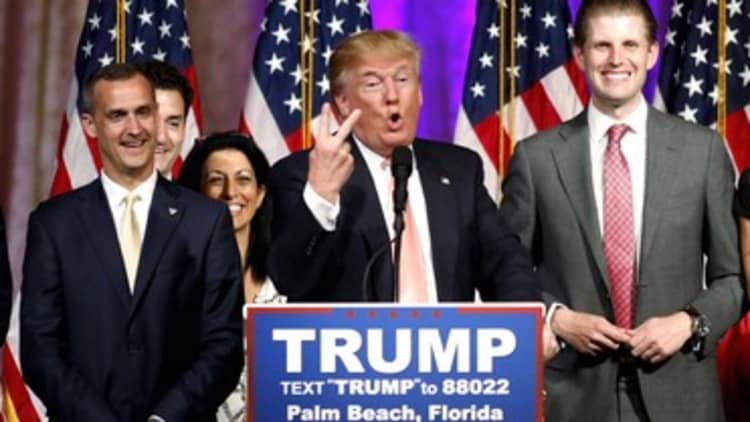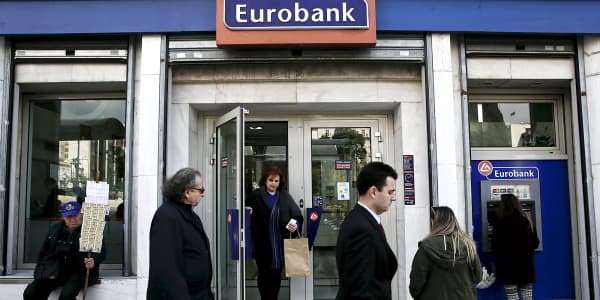Since the chances are growing of the Republican Party's having a convention fight to pick its nominee, a brokered convention could become a legitimate possibility. Even with Donald Trump leading the race with 656 delegates, the odds are increasing that he may not achieve the 1,237 delegates needed to secure the GOP nomination before the July convention.
Complicating matters further is a new rule proposed for the convention that could put all eight candidates who already won delegates on the first ballot. Some Republican unbound delegates are saying they could ultimately change the outcome of the convention and introduce new candidates at the last minute if no one wins a clear majority.
So, who are these seemingly free agents known as unbound delegates, and why are they considered the true power brokers in this race?
'Unbound' delegates
Though the majority of delegates heading to the convention are bound to a candidate, currently 112 delegates of the 2,472 Republican delegates are free to choose or pledge their support for their preferred candidate. They are deemed "unbound" because their states or territories – North Dakota, Colorado, Wyoming, American Samoa and Guam – do not hold primaries or caucuses. While this may seem like a small number of delegates, in a hotly contested convention, every vote matters.
In addition, if no majority is reached after the first nominating vote, most delegates are no longer bound by their state's primary or caucus results. If subsequent ballots are needed, almost all of the delegates can vote any way they want, according to Geoffrey Skelley, political analyst at the University of Virginia Center for Politics.
"That's when the individual identities of the delegates come into play," said Skelley. "This means that it is paramount for candidates to have delegates at the convention who support them."
Below is a breakdown of the current delegates needed for each candidate to have a majority.
Why are they so powerful in this race?
Some unbound Republican delegates, like Curly Haugland of North Dakota, insist that most people do not understand the significance of delegates at the convention or the GOP eight-state rule.
Haugland said that while most people think the rule refers to a candidate's having to win eight states in the primary, the candidate actually needs to demonstrate the support of a majority of the delegates from eight states at the convention.
"The requirement is that the candidate must demonstrate the support of a majority of the delegates from eight states that are permanently seated," Haugland told CNBC's "Squawk Box" on Wednesday. "The delegates cannot vote until they are permanently seated, and that's the first action of the convention."
Haugland even questioned why primaries and caucuses are held at all, saying the media has created a "perception" that voters choose the nominee directly.

Others argue that primaries are necessary, and there would be chaos if the Republican establishment openly flouted a candidate who had garnered support through votes.
"If Trump is leading, and you deny him the nomination, the party is potentially setting themselves up for an even longer battle with him," said Skelley. "Trump might be incensed enough that he might run again or at least there would be an opportunity for the movement that is taking place with his candidacy to cause great damage to the party overall. It would not be a good move."
Trump, himself, warned on Wednesday that his supporters could riot if he were denied the nomination at the convention in Cleveland.
Though brokered conventions have not happened in quite some time, it is possible they could still occur. The Republican's last multi-ballot convention was in 1948. The Republicans came close to having a brokered convention at their 1976 convention when Gerald Ford did not have enough delegates to secure the nomination, but he eventually won enough votes on the first ballot to obtain a majority.
"The delegates have the final say in all of this about the rules governing the convention, but a lot of folks are jumping straight to the roll-call vote which is literally the last order of business in terms of their decision-making process, " said Josh Putnam, political science lecturer at the University of Georgia.
Putnam said that similar to a whip count, unbound delegates can become wooed by the campaign organizations, but this process does not mean there is a lack of order at the convention.
"We may be a lot closer than we were four years ago to a brokered convention, but we need to let the process play out by itself. It's way to early to tell how the delegates will act at that point in time."




